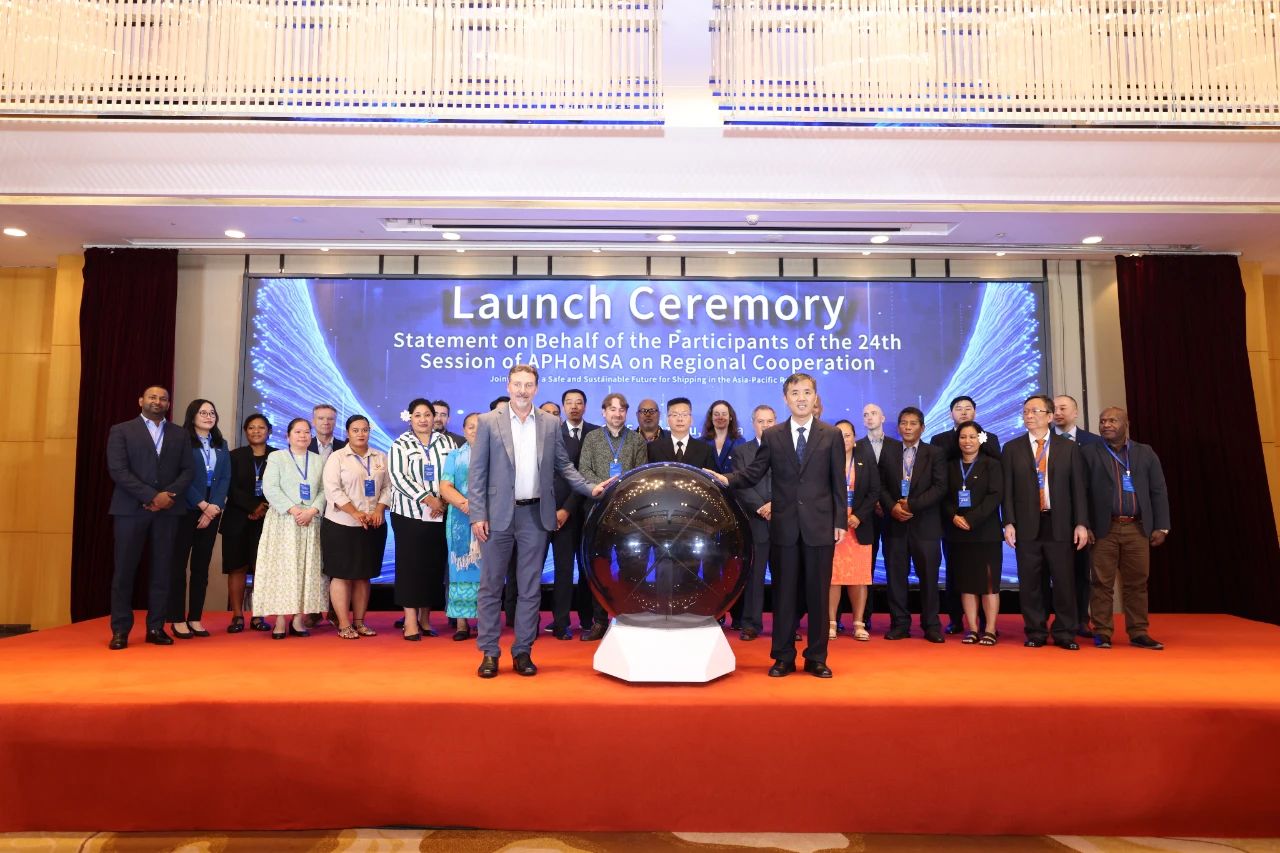
On March 27th, the 24th Session of the Asia-Pacific Heads of Maritime Safety Agencies (APHoMSA) Forum, which lasted for 3 days, successfully concluded in Fuzhou. The meeting reviewed and approved the “Statement on Behalf of the Participants of the 24th Session of APHoMSA on Regional Cooperation (Fuzhou Declaration)”, becoming the first regional cooperation initiative document adopted by the mechanism in its 29 years’ history.
As a member institution of the APHoMSA, the Maritime Safety Administration of the Ministry of Transport has been deeply involved in the affairs of this mechanism, actively voicing China's voice in promoting maritime safety and high-quality development in the Asia Pacific region, and contributing Chinese experience and wisdom. Based on the new trend of global shipping development, in order to further enhance consensus, unite forces, and jointly address the new challenges faced by maritime governance. The Maritime Safety Administration of the Ministry of Transport, based on the development status of shipping in the Asia Pacific region and the practical needs of maritime management, proposed the "Fuzhou Declaration" for maritime cooperation in the Asia Pacific region from a strategic, targeted, and feasible perspective, which was unanimously adopted by all member institutions and observer organizations at the meeting.
Under this initiative, all parties look forward to closer and more efficient cooperation, jointly promoting maritime security, discussing practical cooperation in the region, discussing green and low-carbon development, seeking transformation and reform in shipping, promoting maritime gender equality, and jointly writing a new chapter in maritime governance cooperation in the Asia Pacific region.
In his closing speech at the conference, Xu Wei, Secretary of the Party Group of the Maritime Safety Administration of the Ministry of Transport, proposed that member institutions and observer organizations should further deepen mutual trust and cooperation, work together towards a sustainable future for Asia Pacific shipping within the framework of the Fuzhou Declaration, and move forward hand in hand.
At this conference, China also submitted five proposals, including cracking down on ship fraud registration, developing new energy ships, autonomous navigation technology, training courses for electric ship crew, and maritime gender equality. China actively undertook the coordination work of two communication groups, namely new energy application and electric ship crew training. As the organizer of the conference, the conference representatives visited the large cruise rescue ship “Haixun 06” and conducted a special sharing of maritime supervision services for electric ships. The experience of China’s modern maritime governance and the level of technological formalization were highly appreciated by the conference representatives.
